9 Proven Ways to Improve Your Work Performance

Sorry, there were no results found for “”
Sorry, there were no results found for “”
Sorry, there were no results found for “”
Want to improve work performance? You’ll need to learn to prioritize, delegate tasks, and take control of your schedule. And the best part? Doing so can prevent you from wasting time while preserving your well-being.
According to a 2020 survey by FlexJobs, 75% of employees have experienced burnout at work.
Avoiding the dreaded burnout isn’t just about surviving, it’s about thriving. It’s time to discover how you can achieve more without chaining yourself to your desk for extra hours.
Ready for a deep dive into the world of work performance and the innovative skills that can help you master your work week? Let’s embark on this journey together toward a more productive, balanced, and fulfilling healthy work-life balance. 👊
Work performance measures how effectively you fulfill your role and responsibilities at work. Leaders assess employee work performance by the quality and quantity of one’s work—and the time it took to accomplish it. ⏰
Improving work performance requires effort at the individual and organizational level. At the organizational level, company leadership needs to:
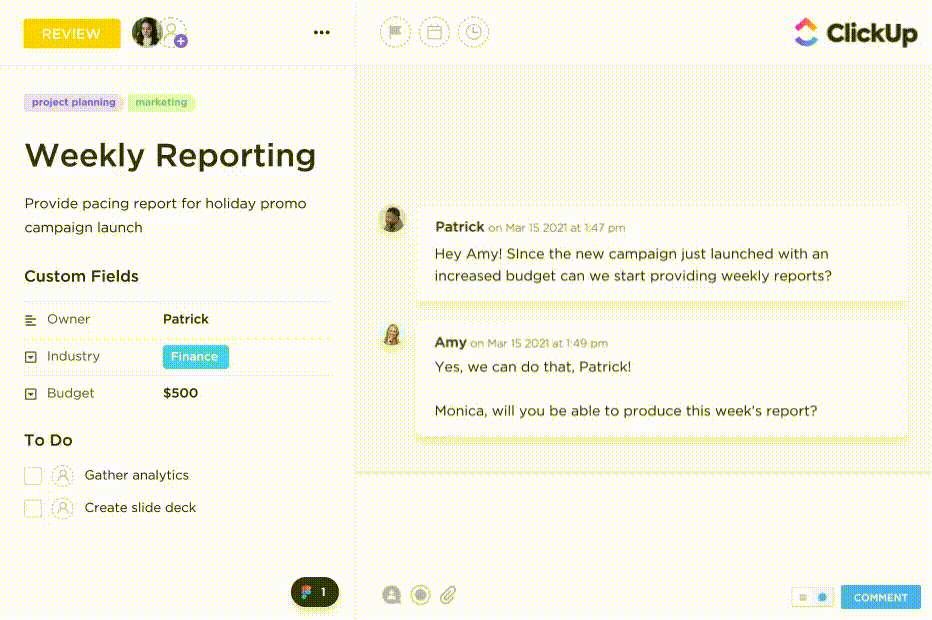
At the individual level, employees need to set clear goals, write to-do lists, harness their time management skills, and declutter their calendars.
But what else can managers do to improve their teams’ professional development and better absorb constructive feedback? We’ll dive into all below!
Looking for actionable, simple steps to improve your work performance? Leverage these tips and tricks to decrease stress, free up mental capacity, and ultimately get more done by the end of the day. 🤩
You can accomplish more as a team than you ever could on your own. Translation: If you want to improve your work performance, you need to learn the art of delegating.

More so, truly enhancing work performance requires the right tools. With ClickUp Tasks, you can break down large projects into nugget-sized tasks.
ClickUp makes it easy to assign multiple team members to tasks, comment on action items, or prevent miscommunication with screen recordings. Plus, you can use different views to see all tasks and subtasks (i.e., every action from the beginning to the end of the project) in one place.
SMART goals are objectives that are specific, measurable, achievable, relevant, and time-bound—and ClickUp helps you check the box on all five requirements.
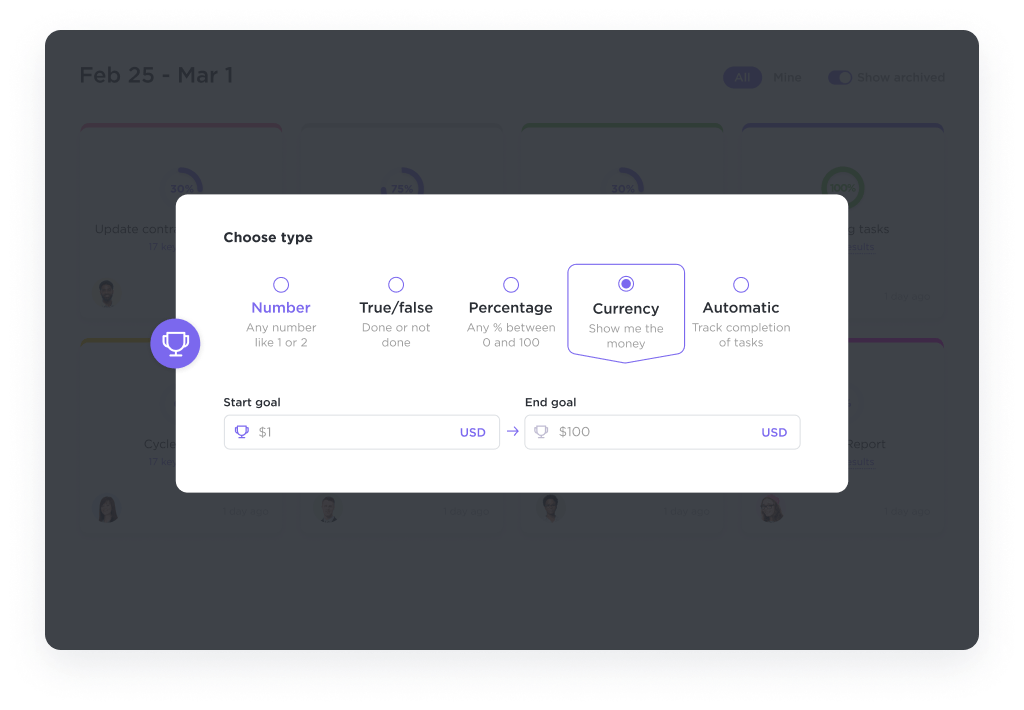
With ClickUp Goals, you can set clear timelines, measure weekly results, and add tasks from different teams into one, attainable goal. Plus, you can track your progress with numerical, true/false, and monetary targets.
To help keep your team organized, consider adding descriptions to each goal and target, so you know which tasks are being tackled by which colleague. Clear and achievable goals help teams see the finish line instead of making the endpoint out of sight. This takes clear communication with your team so you minimize stress and keep an exciting project from turning into a complete burnout.
Nothing disrupts a productive workday like technology that just. won’t. work. To spare yourself from wasting precious work hours calling your IT department, use tools that boost employee productivity.
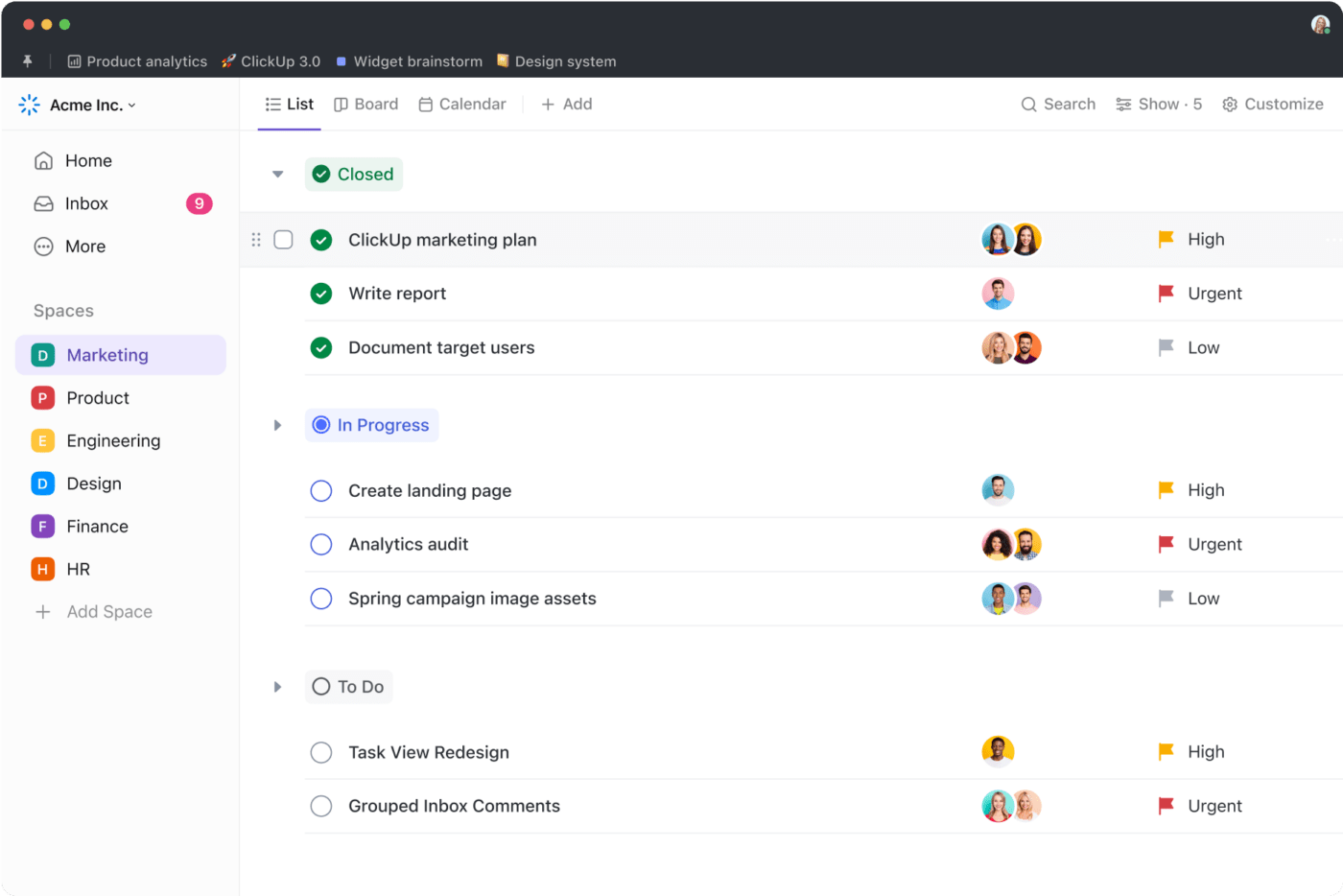
For example, at ClickUp, we continuously revamp our infrastructure for reliability and performance. In ClickUp 3.0, we saw speed performance in tasks and notifications, overhauled our Sprint Widgets, and saw automations improve by 20%.
Translation: You get quicker, more reliable access to the tools you’ve come to love.
If you want to successfully tackle your morning, make sure you know your top priorities the moment you sit down at your desk. How do you do that? Don’t wait until the morning of to write your to-do list. If you want to avoid multitasking, a great starting point is to begin the day with a list of tasks to limit distractions.
Instead, as you close up shop the night prior, itemize these three things:
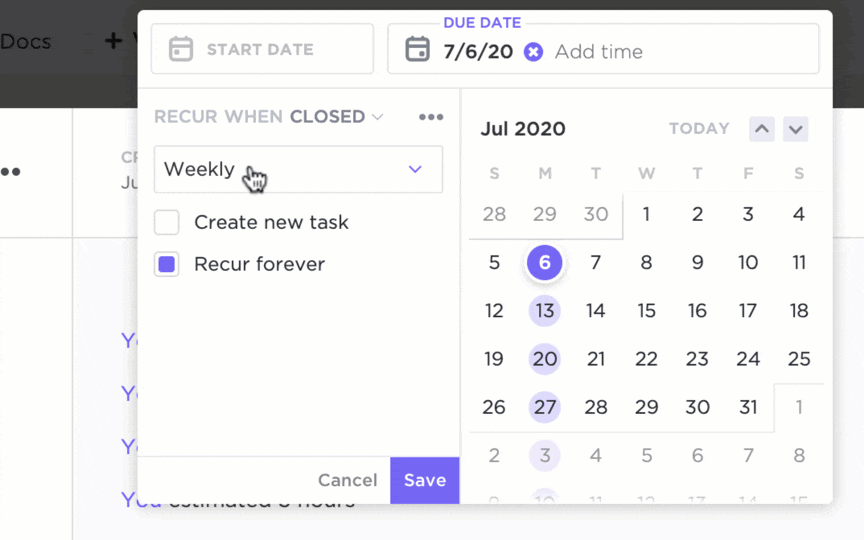
To set yourself up for success, leverage one of the many to-do list templates by ClickUp. With ClickUp, you can build a reliable to-do list system by leveraging the list view, color-coding your tasks, scheduling recurring tasks, or even setting up automated workflows to complete tasks on the fly.
Ever sit down to do a dreaded task … only to stare at your computer for several hours?
Nobody’s perfect, and procrastination tends to creep up on even the most productive humans. To break a procrastination stalemate, try this hack: Set a timer.
Setting a timer for a reasonable amount of time (no longer than 90 minutes) provides the motivation necessary to complete your assigned task. Or if you really need to terminate that staring competition with your computer, set a timer to remind yourself to take short breaks throughout the workday.
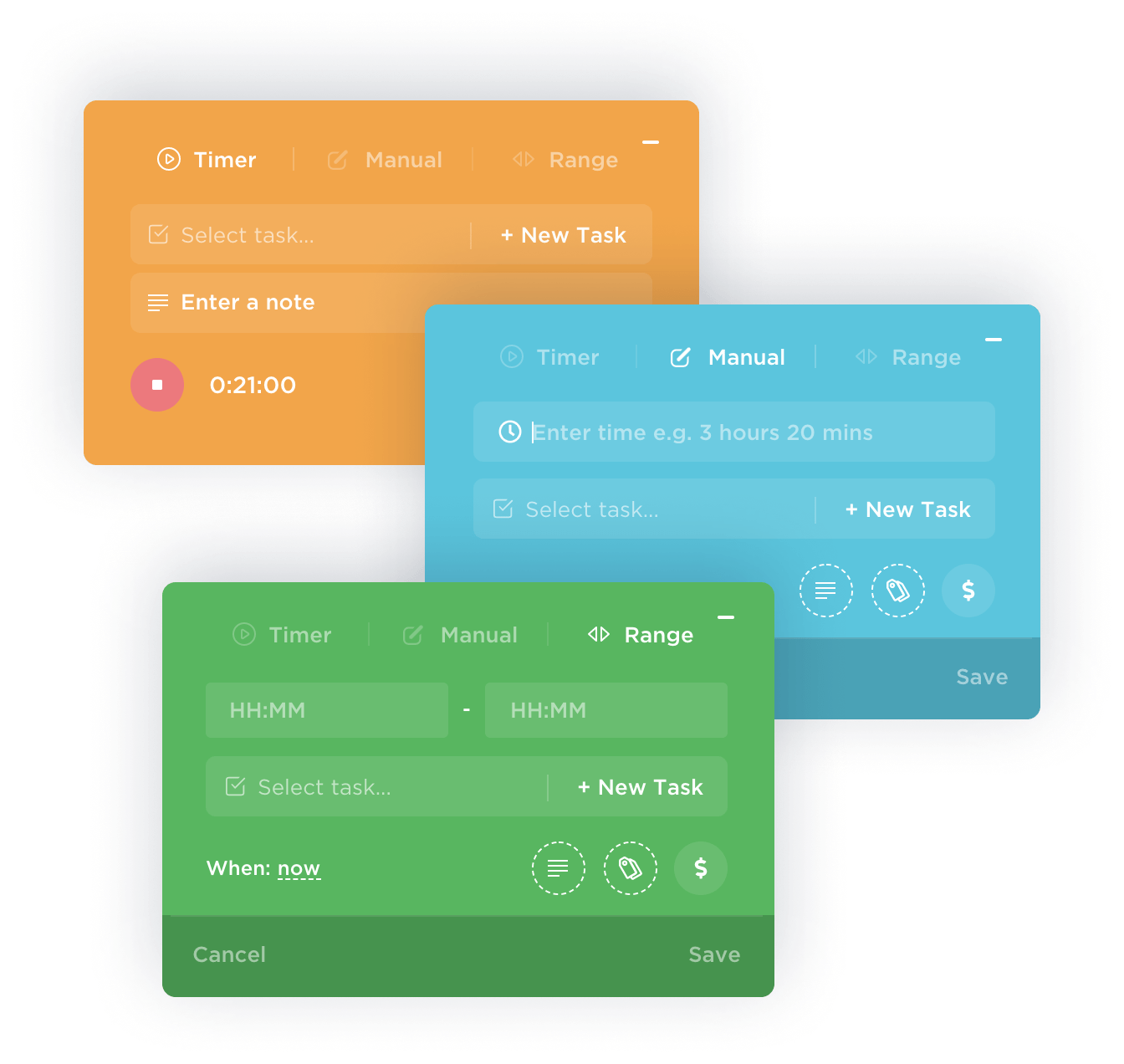
ClickUp Time Tracking allows you to set a timer from any device. To help keep yourself organized and stay on top of your short breaks, you can add notes, labels, or filters to time tracking. In that regard, setting a timer doesn’t just create a sense of urgency—it helps you stay on top of project management, reminding you how you spent your workday.
As the saying goes, if you’re the smartest person in the room, you’re in the wrong room.
Every person within a company—even the executive team—can learn a thing or two from their colleagues. Therefore, if you watch in awe as your team members accomplish one task after another, ask for guidance on what they do to improve performance.
Each one of your colleagues has their own unique skill sets, and they can offer tips and tricks on how to be more productive throughout the workday.
With that in mind, learn to look forward to performance reviews. Sure, performance reviews can be intimidating, but they’re an opportunity to get pointers from your management team.
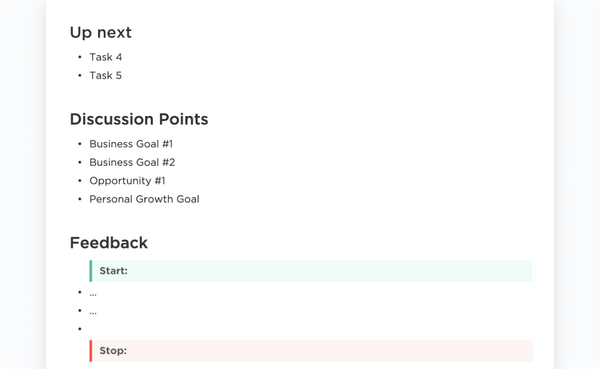
With ClickUp’s performance review tools and templates, supervisors can set goals and create productivity reports for their direct reports, thereby keeping the whole team on track. Plus, they can create an individualized employee performance improvement plan to help their teams attain their goals.
Your performance at work should be noticeable—especially if you’re trying to significantly improve. Performance reviews can help you get that clarity.
As work piles up, it becomes increasingly challenging to remember all there is to be done. To free up mental capacity, set automated reminders so you won’t forget about nagging tasks.

With ClickUp Reminders, you can set yourself a reminder for virtually any task, from any device. You can build reminders from an existing task or notification, or start from scratch. You can view all reminders from your home screen, then snooze, reschedule, or delegate them to ensure no tasks get lost in the shuffle.
Plus, you can add due dates, attachments, and recurring schedules to reminders to help improve your overall performance.
Constantly jumping from one task to another causes unnecessary mental strain, which can lead to burnout. Trying to jam too many unrelated tasks into a single workday is kind of like trying to perform 25 different exercises at the gym: It wears you out quickly but doesn’t provide the best results.
To take back control of your calendar, try time blocking to improve performance at work. Time blocking is a time management technique where you group similar tasks. For example, you might choose to cram all your meetings into just two days a week—Tuesdays and Thursdays—to free up brain space on the remaining three days.
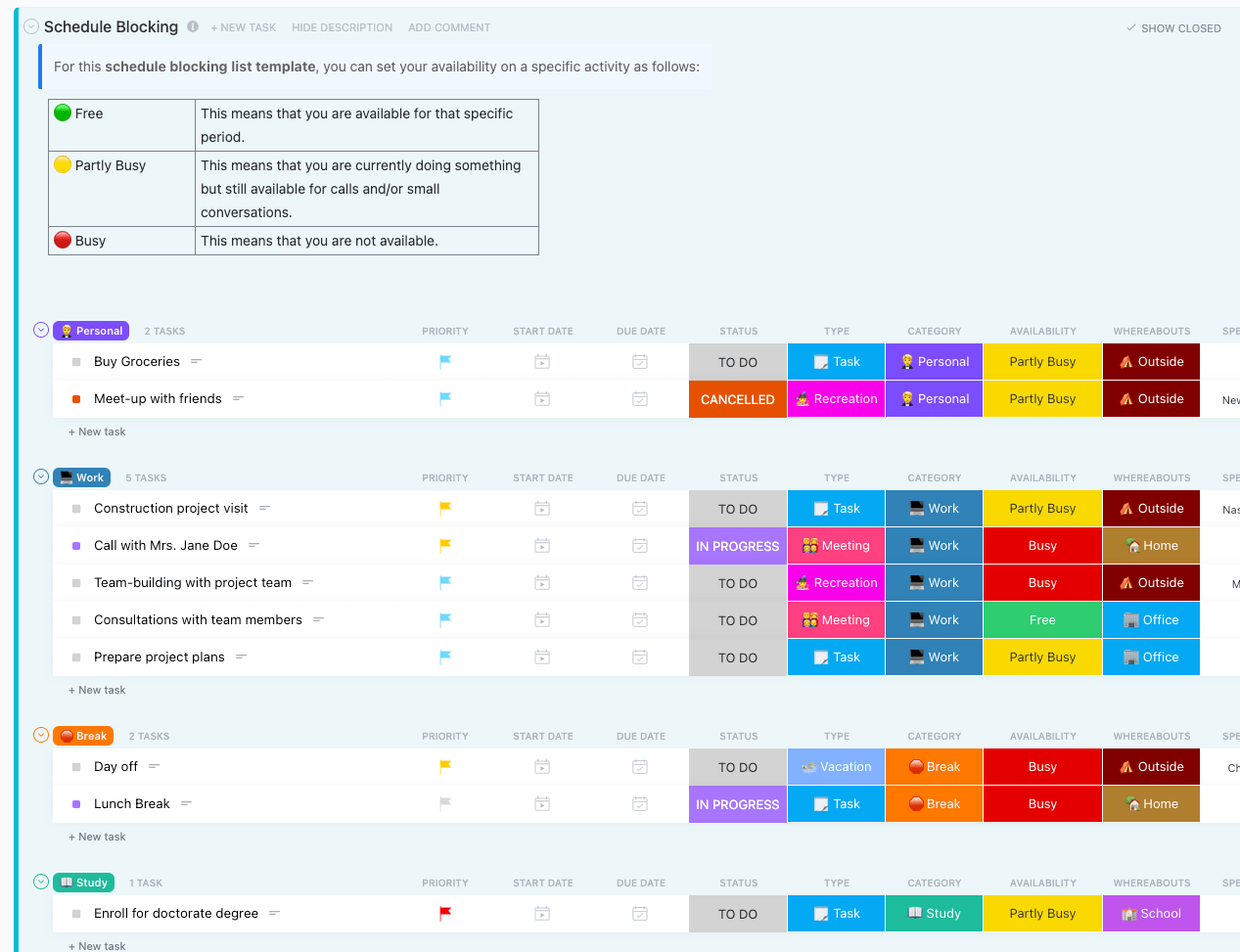
Or, if you work in a service-based industry (like a marketing agency), perhaps you choose to work on deliverables for just one client per day (versus every single client on your roster). Don’t know where to start?
ClickUp offers several time-blocking templates to help improve your work-life balance.
As you work to improve work performance, remember this: Perfection is unattainable. And actually, pursuing perfection could be detrimental to your productivity.
To protect your energy levels and prevent burnout, remember to celebrate every milestone. A celebration can simply be a short break to stretch your legs and walk around the block. Or you could invite a colleague to take a meeting at a coffee shop versus a chat in the conference room.
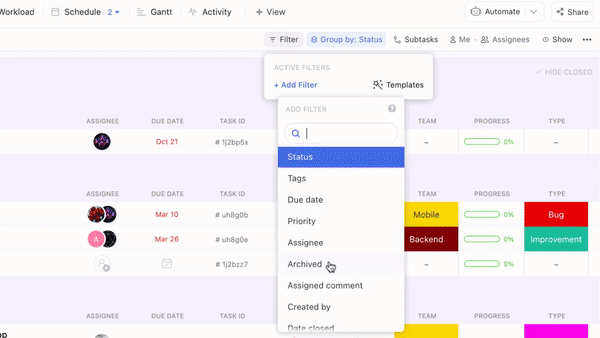
As you celebrate one milestone and move on to the next, remember that ClickUp Milestones give a visual representation of your project’s most pressing tasks. Simply group different tasks, then customize your view to get a high-level look at the key stages of your project.
Want to get more done while prioritizing your mental capacity? Try these five performance templates from ClickUp to improve your overall performance at work. 📚
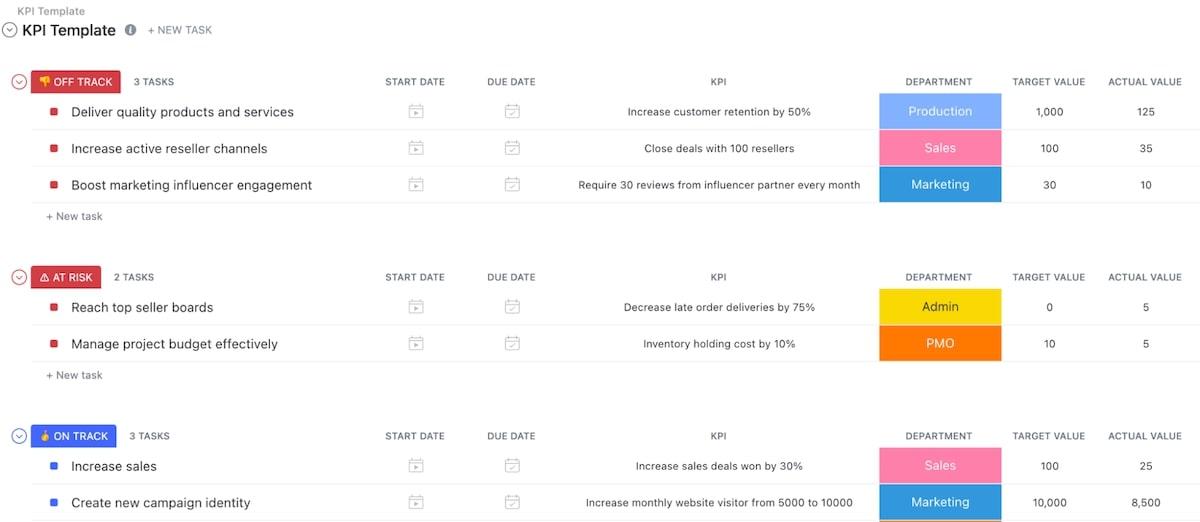
Want to know if each department is on track to reach this quarter’s objectives? ClickUp’s KPI Template breaks down every KPI in the company, organized by department.
From there, leverage a color-coded system to instantly understand whether the team has completed an objective, is in progress, or has derailed from reaching their goals. Plus, add notes and subtasks to help keep your team on track.
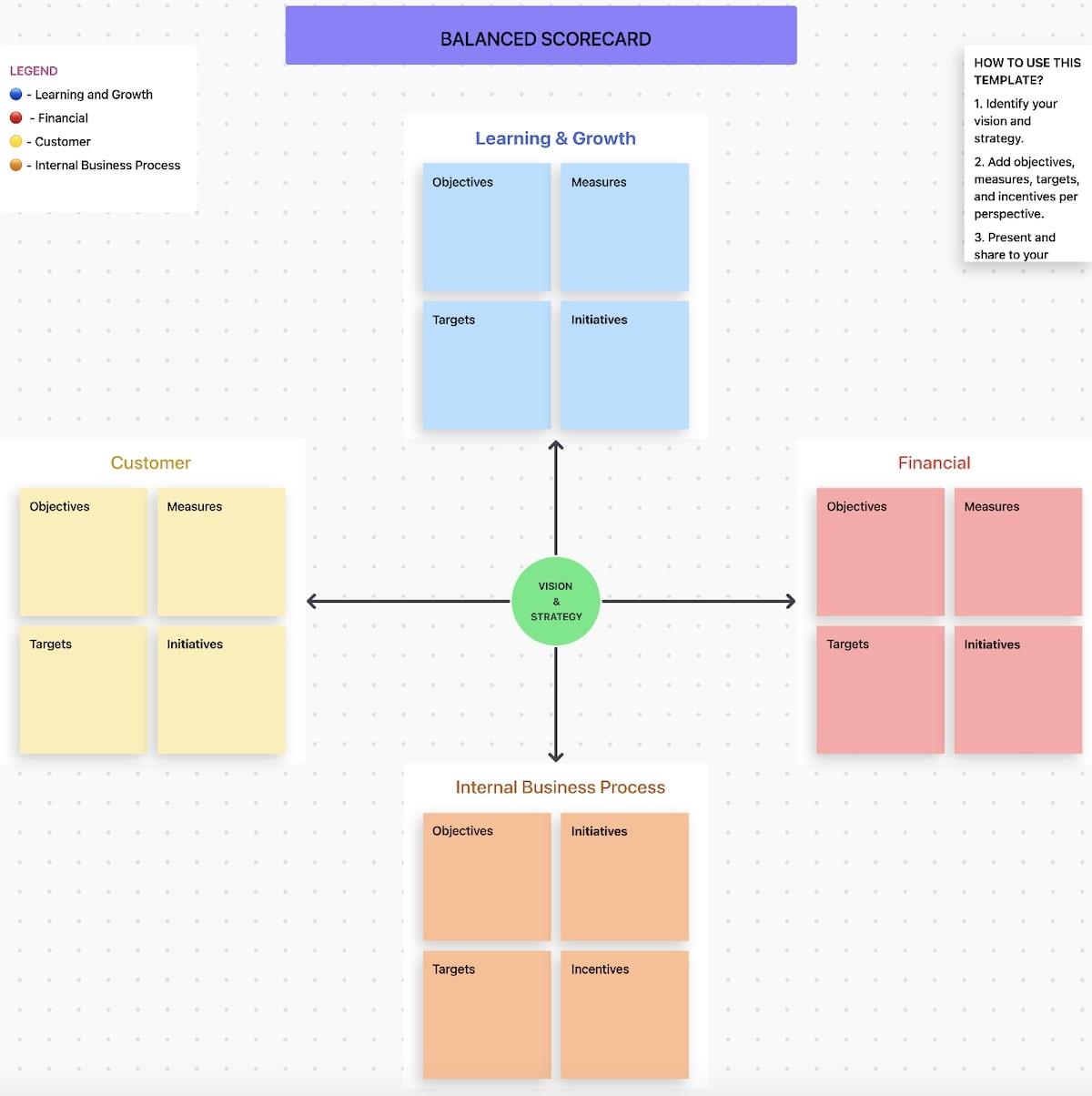
Want to set achievable goals for your team? Be sure team members know how each initiative contributes to the overall success of the company.
With this easy-to-follow Balanced Scorecard Template from ClickUp, you can see the objectives, initiatives, targets, and incentives for four areas of the company—customers, learning and growth, financial, and internal business processes.
Start collaborating in the ClickUp Whiteboard, then tackle your to-do list with the Calendar or List views.
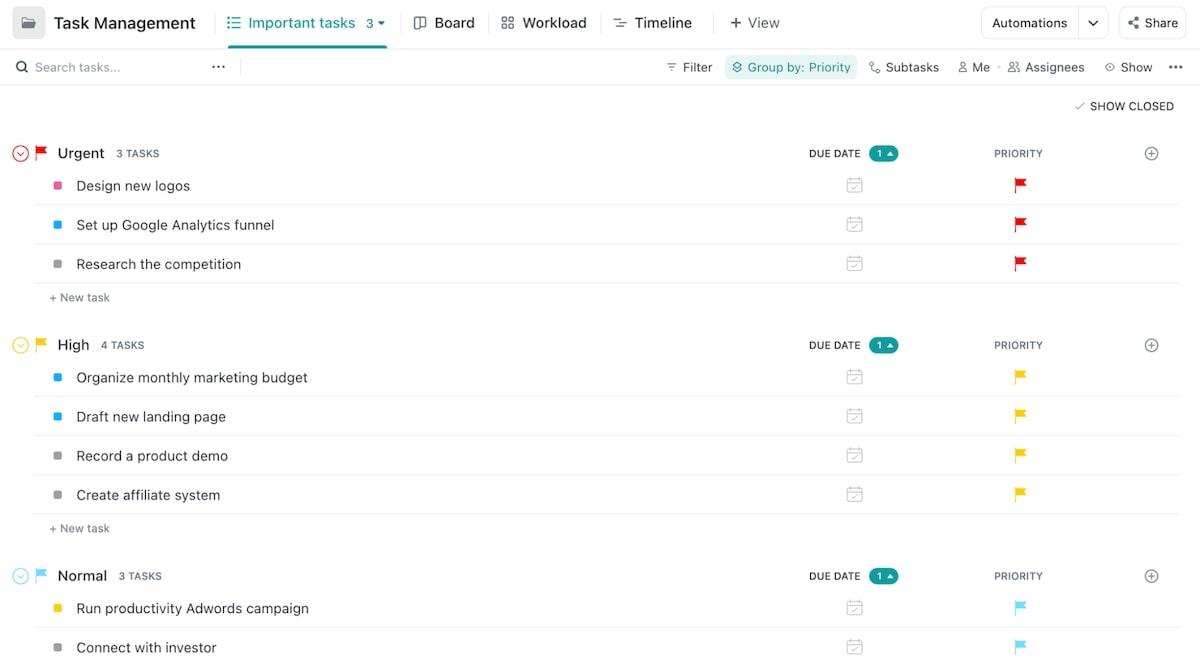
One of the best performance management tools at your disposal is learning to prioritize. With the Task Management Template from ClickUp, any team member can easily see which assignments are urgent, high priority, or low priority.
You can color-code the template, add subtasks, and assign due dates to help colleagues master task management.
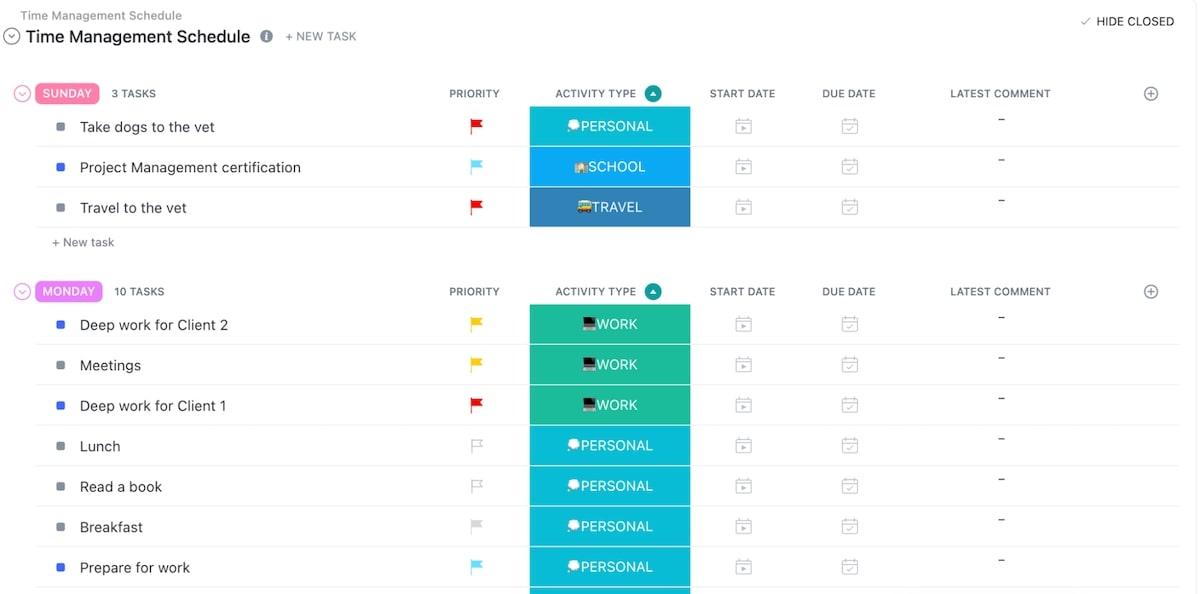
Having trouble balancing your personal life and career development? The ClickUp Time Management Schedule Template allows you to take charge of your weekly to-do list by grouping activities by work, personal, travel, or other categories.
Use the color-coded system to assign the level of priority for each task, set start and due dates, and add comments to help you maintain a productive week. All of it will lead to better morale and energy levels—without having to lose focus or adopt a bunch of new skills.
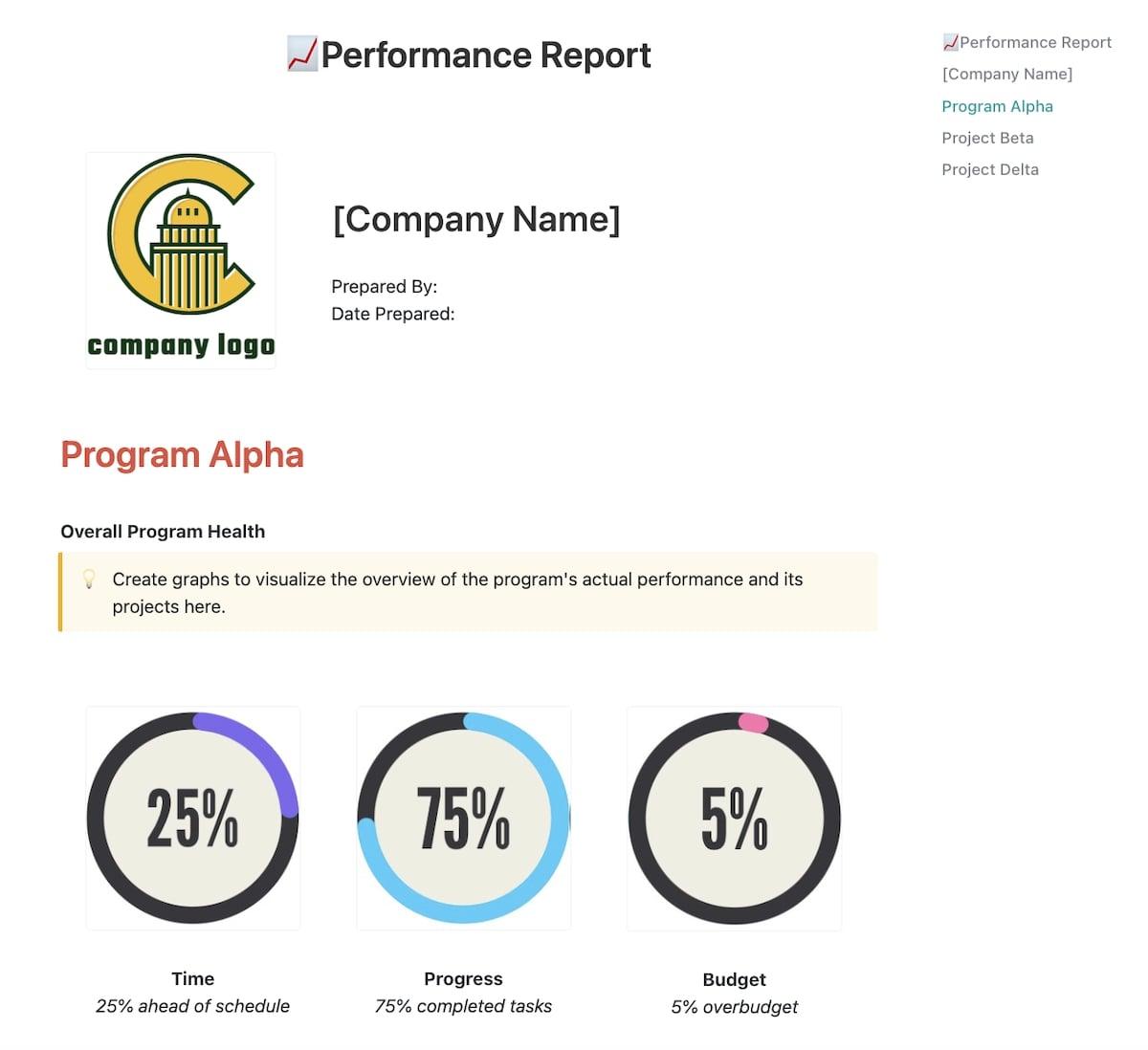
Measuring the effectiveness of a current project? Developing a performance improvement plan to boost employee engagement? This detailed Performance Report Template from ClickUp offers graphs, built-in calculations, and numerous sections to measure performance.
Leverage the “Index Score” section to note which items are on track, urgent, behind schedule, or completely on hold to help move projects and team work performance forward.
To improve your performance at work, use the tips above, like setting SMART goals, determining your priorities in advance, celebrating each milestone, and time-blocking your calendar. Doing so can help you accomplish more throughout the workweek while preserving your mental energy. 🙌
Fortunately, ClickUp has all the tools you need to improve work performance, prioritize tasks, and help you break projects into achievable workloads. To access performance templates, leverage thousands of integrations, and harness customizable views to take charge of your calendar, join ClickUp today.
© 2026 ClickUp